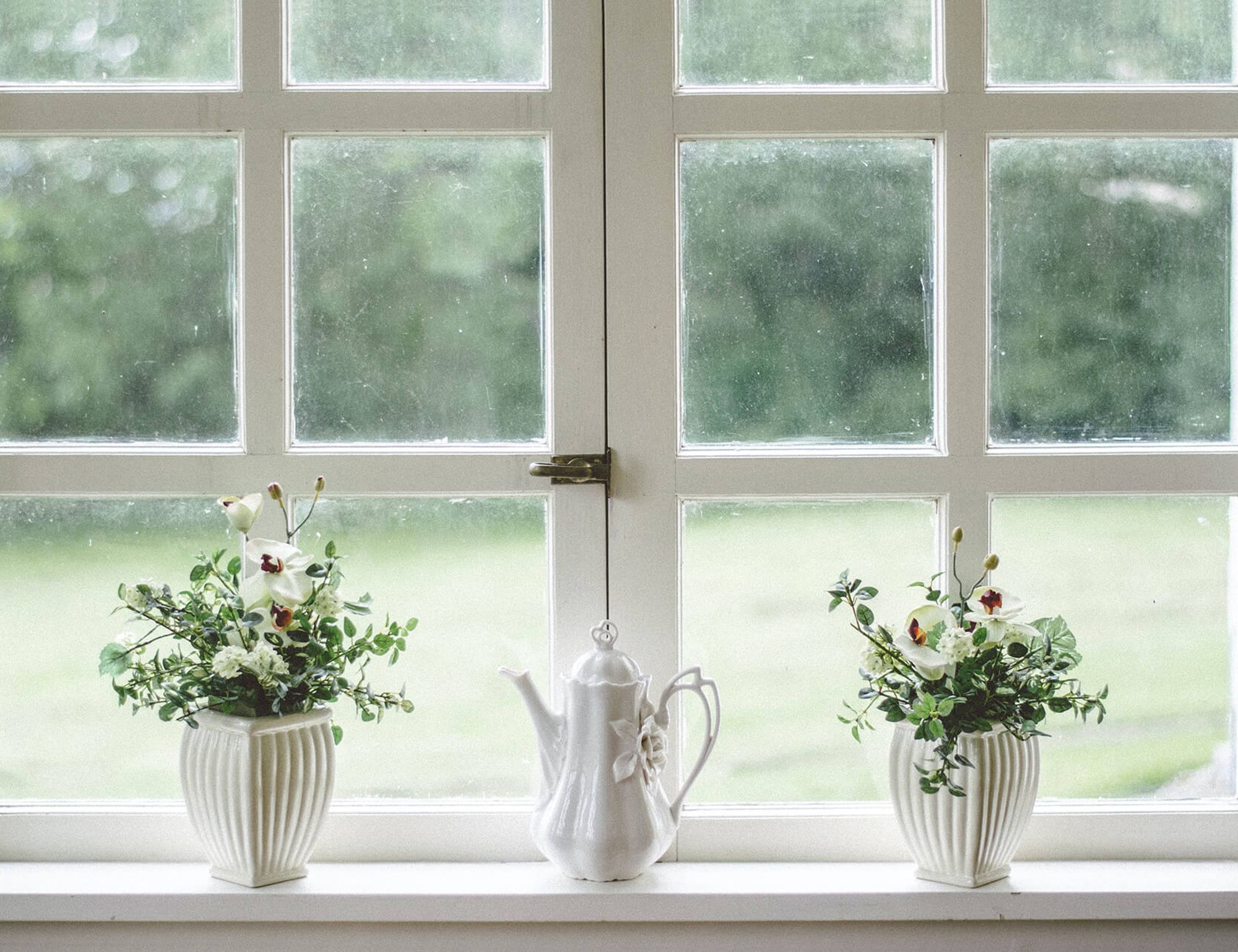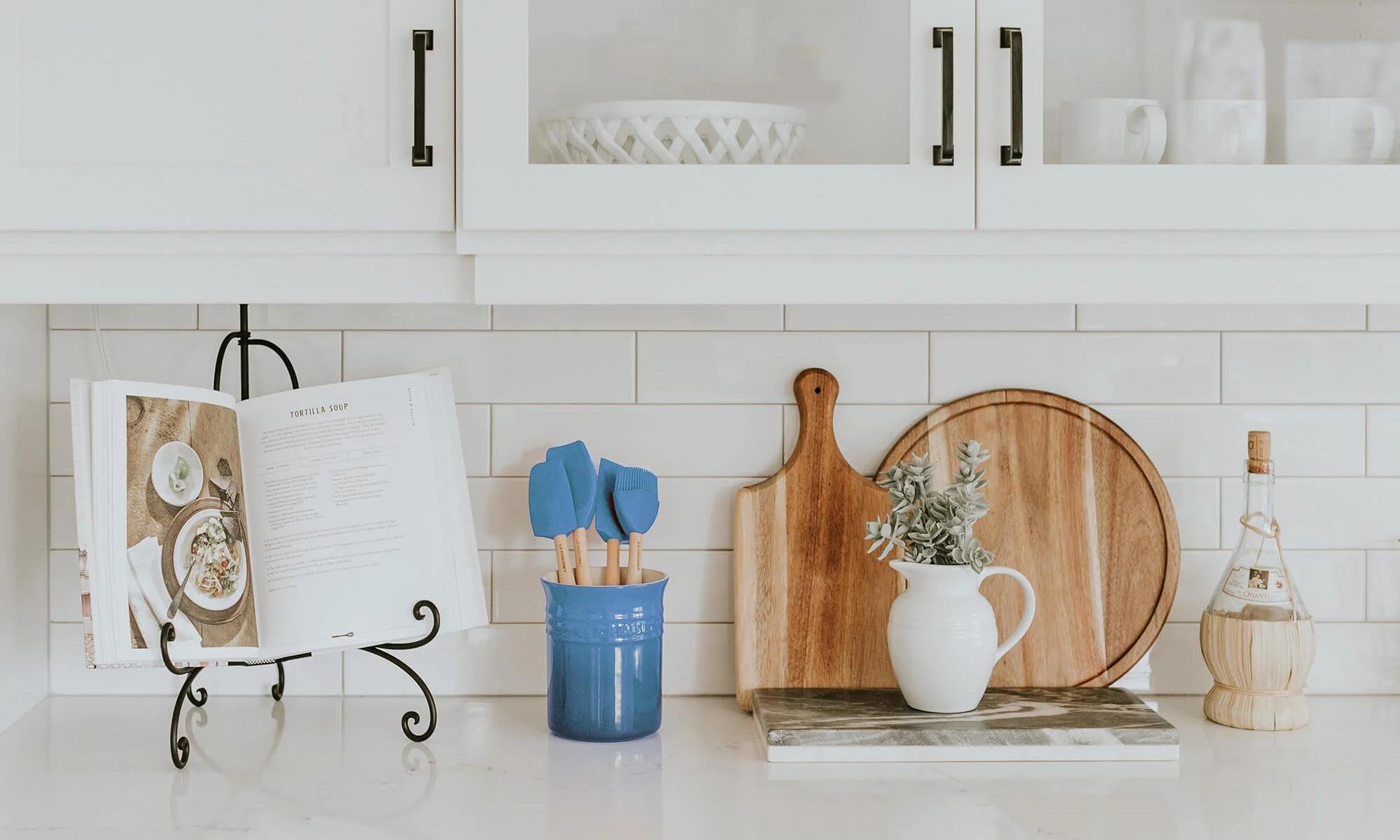
Guide to selling my house or apartment in NSW
It's the age old questions, is now a good time to sell? How can you research the market to find out what is happening in your local area and what are the steps to selling a property?
To help property owners who are looking to sell their home or investment we have created this guide. We believe when you understand the process of selling, you can make more informed decisions which can help you achieve the best sales result possible.
We trust you will find this guide useful.


Timing your property sale - when should you sell?
Should I sell my house now?
We are often asked ‘should I sell now?’ Or ‘when is the best time to sell my home?’ While there are some seasonal factors people often believe come into play, there really is no right answer to this question.
The right time depends on a variety of factors but most importantly your needs and individual circumstances
Here are some common reasons homeowners may choose to sell their property now:
- You live in a hot seller’s market and want to capitalise on the strong market conditions.
- You have decided to make a sea or tree change because of changing priorities.
- The kids have moved out, and you want to find a home more suited to your current lifestyle needs.
- You are moving to another city, or another part of the city.
- You want to profit from recent home improvements.
- You want to take advantage of low mortgage rates and upsize your home.
- Your financial situation has changed and you want to free up some money.



Understanding buyer and seller markets
Property markets aren’t strictly favourable to buyers or sellers but rather a combination of both. For example, most cities in NSW have suburbs where demand is greater than supply and vice versa, creating pockets of both buyer’s markets and seller’s markets. While there is no golden rule for either, here are some of the typical characteristics of the different markets.
| How to tell | Buyers market | Sellers market |
|---|---|---|
| Time on market for properties | Longer | Shorter |
| Auction clearance rates | Lower | Higher |
| Property prices | Lower | Higher |
| Rental Yields | Higher | Lower |
Timing the market is difficult, so it’s important to remember that the best time to sell is when it works for you. It’s a good idea to talk to your local real estate agent about your local market. Discuss with them your priorities and what is the next best step for your circumstances.

Selling real estate in a seller’s market
In large parts of NSW there is no question they are experiencing a seller’s market. There are simply more people who want to buy homes than there are properties for sale. In a seller’s market properties often sell quickly and in many cases above the asking price or the reserve. If you are thinking of selling, selling in a seller’s market is ideal.
An experienced agent can help add enormous value to a property sale if you’re selling in this market. They can promote the property to their active buyer database who may be keen to pay a premium in order to buy it quickly. They can then use their skills to negotiate between interested buyers to achieve a great result for the vendor. Or they can work an auction room and extract the highest sale price on the day. Leveraging the skill of a high performing agent can help ensure you achieve the best result possible in this market. Talk to a DiJones real estate agent about your current market click here.
Selling a house or an apartment in a buyer’s market
A buyer’s market occurs when the number of available properties for sale exceeds the number of people actively looking to buy. When there is a lot of stock on the market, sellers can expect their property to stay on the market for longer, they may also sell below the list price and may have to make several concessions to the buyer. Partnering with an experienced real estate agent is critical during these markets.
An agent can advise you on home updates that would appeal to local buyers. They can work with you to ensure your pricing is competitive. They know how to create a high impact property marketing strategy and are able to reach buyers; active, passive and out of area. In addition, their negotiation skills can help you achieve a strong result. If looking to sell in a buyer’s market, partnering with an experienced agent can mean the difference between selling or not selling. Talk to a DiJones real estate agent about your current market click here.
When is the best season to sell a property?
With regards to the best season to sell, again this varies and even more so now as a result of the pandemic fuelled housing boom. While we expect some seasonality in the housing market will remain over the long term, we may find the changes between the seasons less dramatic.
Here’s a look patterns we traditionally see across the seasons:
Selling in Spring - traditionally, spring is the most popular time to sell a property. The weather is warmer, and buyers are out in force hoping to purchase before the summer holidays. Spring also means more buyers have more choice and therefore when selling your property will have more competition.
Selling in summer - summer is also popular with many buyers who are keen to purchase a property before the new school year starts. There are however often fewer properties on the market so it can be an excellent time to sell as there is less competition. However, keep in mind buyers are often on summer holiday so it may account for a bit of a slowdown in the market.
While we expect some seasonality in the housing market will remain over the long term, we may find the changes between the seasons less dramatic
Selling in Autumn - buyers keen to buy before the school year picks up or the weather turns, can lead to a level of urgency that can benefit sellers. Over the last few years, we have started to see autumn as a ‘second spring’, with properties hitting the market and buyers coming out in force.
Selling in Winter - while winter is traditionally the slowest season for home sales, if your climate or property suits a winter sale, winter could be ideal. Less competition and an opportunity to reach buyers keen to purchase before the rush of spring.
When does your property shine? - outside of seasons, when determining the timing of your sale, consider the type of property you are selling and its location. For example, do you live near the beach and would tourist traffic be beneficial? Does your property work well in winter and therefore, would July be better?
Talking to your local real estate agent is key here. They are the best person to advise you on seasonal and local factors to help you determine when is the best time to sell your property.

How to research the real estate NSW market
Where to start your research
Knowing what is happening both within the wider and local real estate market is a key first step when looking to sell your property.
Understanding the supply and demand for your local area, what is selling and how much it is selling for is important. Plus, it’s a good idea to know what is happening in the wider market and understand how this could impact your property.
But where should you start?
For insights into the local market, the best person to talk to is your local real estate agent. They are aware of what is selling, what has sold, what it sold for, what’s coming on the market and what demand is like. Ask them for a local market report as this is packed with information on your neighbourhood.
For wider market data, there are several free resources you can access online that will provide you with detailed demographic insights, median property value and suburb specific data. Here are some sites to help you get started
Role of the real estate agent and how they help achieve the best result
If you are a homeowner looking to sell a property, your goal is undoubtedly to achieve the best result possible from your sale. A real estate agent is a specialist whose role is to work with you to help you achieve your property goals.
In order to achieve the best result possible a skilled real estate agent will:
- Complete a property appraisal and assess the current market to determine a price guide for your property if you were to sell in those conditions
- Create a high impact marketing campaign to reach as many active and passive buyers as possible
- Identify the best features of your property and showcase and promote these throughout the campaign
- Coordinate professions to stage, photograph and video the property
A real estate agent is a specialist whose role is to work with you to help you achieve your property goals
- Schedule and oversee open homes or private property inspections
- Negotiate a sale or manage the auction process
- Work with your conveyancer or lawyer to ensure contracts are in place and the process runs smoothly
- Manage the final inspections and help coordinate settlement and handing over of the keys to the new owners
For more information on the role of a real estate agent and how to find the best one to sell your house or apartment connect with your local DiJones real estate specialist.

Finding a real estate agent - where to do your research
As with anything in property, research is key and the good news is with so much information available online you can easily research your local agents to find the right one to match your goals, your communication style and the level of support you need.
Here are a variety of ways you can research your local agents:
- Visit local agents’ websites, view their current listings and sales history.
- Review blogs or articles to understand their knowledge of the area.
- Read their Google My Business reviews, research them on social media and subscribe to their newsletters.
- Visit open home inspections, ask questions. Do they have in-depth knowledge and are they able to sell its features to you?
- Do they follow up with you after the open home?
- Attend one of their auctions to see them in action.
For more information about how to find the best real estate agent for your property click here.
What questions to ask when choosing a real estate agent
Once you have a shortlist of high performing agents, it’s time to interview them.
Sometimes it’s hard to know what to ask, so here are some key questions to help get you started:
- Why did you choose to be a real estate agent, what do you love about the job?
- Can you share insights into my local market, what is selling, how much is it selling for, what is demand like?
- How much will it cost to sell my home?
- How would you suggest I sell my property? What method of sale would be best and why?
- Is now the right time to sell and why?
- How will you market and advertise my property?
- What is my property worth and why?
- Where do you think key buyer demand will come from?
- What can I do to maximise my results? Are there any changes you would suggest I make to my property to prepare it for sale?
- What separates you from other local agents?
- Have you sold similar properties in the area? What were the results?
- How many relevant buyers do you have on your database?
- Can you share references from previous clients?
What’s my property worth?
How much is my house worth? Getting a property value estimate
Before listing your property, you need to understand how much it could sell for in the current market. Your local real estate agent is the best person to help you here.
- Comparative market assessment – what is selling and what has sold in the last 90 days and for how much
- Property Size: this includes both the land and structure size, the size of rooms in the house, outdoor spaces, and garage size
- Features: such as the number of bedrooms, whether there is an ensuite, built-in wardrobes, whether the home has views, pool
- Fixtures & Fittings: may include anything that can be used in the sales price, such as a dishwasher, washing machine fitted into the laundry, downlights
- Location: proximity to schools, shops, public transport and new developments, also whether the suburb is increasing in value
- Building structure: whether the building is in good condition, are there cracks, outdated guttering or roof, etc
- Overall presentation and fit out
- How easy is it to access?
- Are there any planning or zoning restrictions?
- Review similar properties that have sold in the last 90 days
- Local and wider market conditions
Read more about how do I find out how much my property is worth click here.
What is a property valuation and how is it different from a property appraisal?
There is often confusion around the difference between a property valuation and a property appraisal.
A property valuation is completed by a licenced valuer and will cost you approximately $300 - $600 for the report. Valuers are legally responsible for the information they provide so they base their valuation on facts rather than market sentiment. Banks often require property valuations when determining home loans. Valuation pricing is often more conservative than property appraisals because valuers don’t consider market sentiment and buyer demand when determining their valuation.
A property appraisal on the other hand is free, is prepared by a real estate agent and is not a legal document. An agent will assess the property in a similar way to a valuer, but they will factor in emotional elements such as buyer demand and market sentiment to determine a price they believe the property could sell for if it was to sell at that point in time.

What are the different ways to sell my house or apartment in NSW?
Four key ways to sell a property
Up until recently there have been 3 key ways to sell a property in NSW; Auction, Private Treaty, Expression of Interest / Tender.
However recently we have seen the rise in popularity of ‘off market’ property sales.
Here is a look at different options you have to sell your property in NSW.
Selling a property via auction
A real estate auction is a public sale of a property, usually conducted by a licenced real estate agent acting as an auctioneer and is governed by strict rules and regulations.
An auction is advertised for a specific place, time and date. Prospective buyers are invited to bid. If the property reaches the reserve, the property will be sold to the highest bidder. Contracts will be signed immediately after the auction, the deposit will be paid and the seller is legally obliged to complete the sale as there is no cooling off period.
There are four different types of property auctions in NSW:
- On-site auction takes place at the property.
- In-room auction takes place in an office or in a room away from the property and often more than one property is auctioned during that session.
- Private Auction is for registered bidders only and has a closed-door policy.
- Online auction – take place online and has increased in popularity due to various state lockdowns due to COVID-19
The competitive nature of an auction can produce exceptional results.

Selling a property via private treaty
A private treaty sale is when a property is listed for sale with an asking price, or a price range. Interested buyers can make a formal offer in writing to the agent who will in turn present the offer to the homeowner.
The agent will then negotiate on behalf of the seller until both parties are happy with the price.
Private treaty prices may look like the following:
- A set price, such as $750,000
- A price range, $725,000 - $775,000
- Contact the agent for pricing
- By negotiation
A private treaty sale is more flexible and gives the seller greater control over their final sales price.
Since COVID-19 we have seen a rise in off-market property sales and we expect this to continue
Selling a property by expression of interest / tender
Expressions of Interest or Tender sale is essentially a closed or silent auction where buyers are invited to make an offer by a particular time and date, following a targeted marketing campaign over a period of a few weeks.
Expressions of Interest and Tender sales:
- Are confidential so buyers cannot base their bids on others.
- Creates a sense of urgency as there is a final submission date.
- Buyers are encouraged to put their best offer in first as they are unaware of other offers and may be worried about missing out on the property to another bidder.
- Is often most suited to high-end or exclusive property types.
After the closing date, the seller and agent will review the tenders or EOIs and start negotiating or they will accept or reject the offers.
Selling a property off market
Selling off market is rapidly increasing in popularity, particularly in areas where there are only a few properties for sale but a lot of buyers looking to purchase. In this instance, buyers are often keen to buy a suitable property quickly before it has a full marketing campaign behind it.
Selling off market relies on the agent promoting the property to their database of high intent buyers and in many cases promoting it through buyers’ agents. Some vendors prefer this method because:
- Potential to sell faster.
- It works particularly well if the seller lives in a popular suburb where only a few properties are for sale.
- Keeps your sale more private.
- Increasingly popular with buyers and sellers particularly during the current property boom.
- Lower marketing costs.
Selling my house privately
In addition to the traditional methods of property sales, there is the option to sell your property privately, without using a real estate agent.
This method involves the homeowner taking responsibility for pricing, marketing and promoting the property for sale. The homeowner is responsible for hosting open homes, negotiating offers and working through the contracts with their conveyancer or lawyer.
This method of sale is popular in markets such as the UK, but in Australia where there are large fluctuations across property types and pricing, partnering with a specialist local real estate agent will ensure the best result is achieved.
Bundle selling and buying
Many homeowners are nervous about selling before they buy a property and vice versa. They worry about not having a place to move to, or carrying the burden of bridging finance. What if you could find a team of real estate agents who could help you buy and sell at the same time and take this stress away.
At DiJones, the way we are set up is unique. We have a centralised network wide database which enables our team of real estate agents to promote properties directly to our high intent buyers, plus we are able to connect buyers to homeowners who we know would be prepared to sell their property if the price was right.
Bundling your buying and selling with DiJones is easy given the way our data is shared and how our teams right across NSW collaborate to achieve the best result for our clients.
Selling my house or apartment FAQ’s

Real estate agent commission - what is it and what does it cover?
Real Estate agents charge a commission to sell a property. In most cases they don’t get paid if the property does not sell so it is in their interest to work hard to achieve a strong result for their vendors every time.
There are generally two types of real estate agent commissions: fixed commission is based on the sales price – so if you sell a home for $700,000 on a 2.0% commission, you’ll pay $14,000 to the agent. A tiered commission is based on performance. So, you might agree to pay 2.0% commission if the property sells for under $700,000, or $2.5% if the property sells for over $700,000.
Some agents will offer lower rates to get your business but be wary of basing your decision on who is offering the cheapest rate, as you often find you get what you pay for.
What are the key costs of selling a house or an apartment in NSW?
When selling your house or apartment, being prepared for the main costs is important.
Here are three of the key costs to discuss with your real estate agent and legal team:
Marketing Costs - marketing campaigns are generally a mix of print media and digital and include professional photography, a property video, advertising on the real estate agents website and real estate portals such as domain.com.au or realestate.com.au. They also include signboards, property brochures and letterbox flyers. You can expect to spend 0.5% to 1.0% of the property value on marketing.
Commissions & Agent Fees - commission is paid when the property sells. The commission rates vary, so it is important to talk to your agent about this. This will be paid when the property settles so while you don’t need to allocate a budget you need to be aware of this.
Conveyancing and Legal Fees - conveyancers either charge a flat fee or an hourly rate. In NSW, conveyancing fees generally range from $700 to $2,500, with costs such as Certificate of Title search, mortgage registration, inspection fees and property transfer registration all additional costs. All costs included must be disclosed to you.



What goes into a successful property advertising campaign?
Advertising is one of the most important elements of a sales campaign. A high impact advertising campaign across multiple channels will have a direct impact on the number of buyers you attract and the final sale result.
A strong advertising campaign would normally include the following:
- Professional property styling
- Professional photos and video
- Advertising on the real estate agencies website and on real estate portals
- Promotion via targeted digital media campaigns
- Email campaigns to your real estate agent’s database
- Promotion to buyers’ agents
- Property signboard
- Potentially advertising in print media if local market still supports
- Drop cards for the neighbourhood
A high impact advertising campaign will have a direct impact on the number of buyers you attract and the final sales result
How to prepare your home for sale and add value
While you can’t change the property’s location you can make changes to your property that can impact the success of your sale. Here are some areas to focus on:.
Preparing your property for sale:
- Start with a spring clean. Declutter, throw away any unnecessary rubbish, rearrange your furniture, and clean your carpets, tiles, walls etc.
- Let as much natural light into the home as possible, particularly when photos are taken or inspections are done.
- Consider a coat of fresh paint to give the home a new look. You can paint inside and outside, and we recommend you stick to neutral colours like white and grey.
- Consider replacing any old fixtures and fittings – these are generally quite affordable to fix and they’ll make an old space new again. Look at your taps, shower, and lights and see what can be replaced.
- Give your gardens a tidy up, get rid of any weeds, check the lawn and add top dressing if needed, ensure your driveway is washed, plant some colourful flowers to brighten up the front garden, and paint the fence if needed.
- Update the bathroom. Does it need a new vanity, towel rails or mirror to make it look bigger. Do the tiles need regrouting or perhaps a new shower screen?
- Refresh the kitchen. This is the heart of the home, so if it’s looking worse for wear, consider replacing old cabinets, investing in a new benchtop, replacing the handles or adding a new splashback.
- Check the flooring. Does the carpet need a good clean? If the floorboards are scratched perhaps repolishing them would be good.
Importantly talk to your real estate agent before making any changes, so you don’t overcapitalise before the sale.
How much to sell your house or apartment for?
Setting your auction reserve (the minimum amount you are prepared to sell your property for), or the sale price if you are selling via private treaty, is best done in consultation with your real estate agent.
Throughout the marketing campaign, they have been talking to buyers and are in a strong position to understand buyer sentiment, how many buyers are really interested, and what type of demand and pricing you could expect.
Considering the agent’s campaign feedback, in conjunction with the original property appraisal they gave you and any other recent sale results of similar properties, can help you make an informed decision.
What is the role of a conveyancer or lawyer?
In NSW, a professional conveyancer or property lawyer is specifically trained and qualified to handle real estate transfers from one person to another.
As selling a property is a legal process having an expert familiar with the documents and legislation can help ensure the sales process runs smoothly.
Your conveyancer or lawyer will:
- Help prepare the legal documents and contract of sale. A property cannot be advertised for sale in NSW until a contract of sale has been prepared
- Conduct all title and planning searches
- Organise a land survey to ensure the boundaries of the property are correct
- Complete necessary council checks to ensure your building complies with building regulations
- They will represent you in dealings with the buyer, help negotiate the terms of the contract
- Manage the settlement process and handover of keys to the new buyer

What is the exchange to settlement process in NSW?
The exchange to settlement process in New South Wales begins when both parties have signed a sales contract – you both sign a copy, exchange and sign again. At this point, a deposit is required to be paid by the buyer (usually around 10%). This is held in a trust by your agent or conveyancer.
From there, it takes around six weeks before settlement, which gives buyers the time to sort out any financials and for the seller to ensure any conditions of sale are met. Before settlement, there will be a pre-settlement inspection to ensure the property is ready for purchase.
On the day of settlement, your conveyancer or solicitor will work with the buyer’s legal team to ensure all conditions of the contract have been fulfilled. They will notify your lender that the property is being transferred, arrange for the balance of the loan to be paid and register the new buyer’s loan against the property title. They will also ensure that property taxes, land transfer duty, water rates are paid, and transfer documents are completed and lodged with NSW Land Registry Services.
Finally, the keys are handed over, and you can celebrate a successful sale.
A final note if you are selling your house or apartment
If you are selling your house or apartment we hope you found this guide useful. Of course, our team of real estate agents are ready to talk to you about your property and to answer any questions you have.
Was this content helpful to you?
[1] CoreLogic September 2021